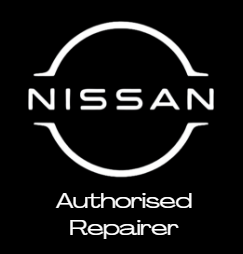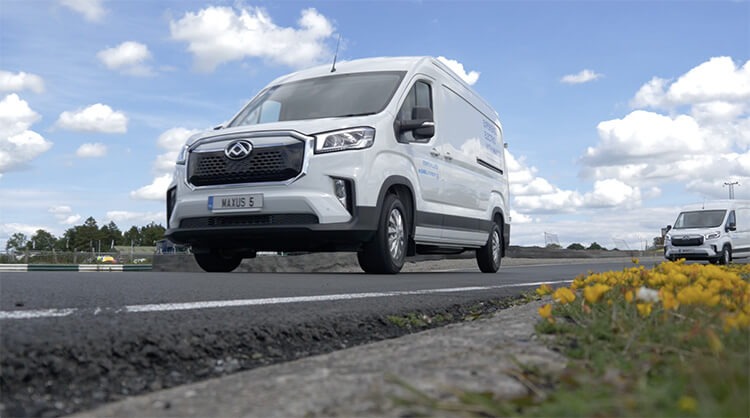Government Policies and EV Regulations for the UK
With the UK Government’s ambitious net-zero target by 2050, understanding EV regulations for the UK is crucial for both EV drivers and prospective electric vehicle owners. We are all experiencing the effects of climate change, and there is a global initiative to cut greenhouse gas emissions to as close to zero as possible within the next twenty-seven years.
Research done in 2021 shows that transport was responsible for 25% of total UK greenhouse gas emissions. To mitigate these effects, a global initiative is underway to drastically cut greenhouse gas emissions – the very emissions that trap heat in our atmosphere and disrupt our planet’s natural balance. EVs play a significant role in achieving this goal, as they produce zero tailpipe emissions, significantly reducing a driver’s carbon footprint. Maxus is committed to providing cleaner, greener, and more sustainable transport solutions for the light commercial vehicle industry with our electric van range.
Understanding Regulations for Electric Vans in the UK
In November 2020, the UK Government announced that the sale of new petrol and diesel cars and vans would be phased out by 2030. They also want all new cars and vans to have fully zero emissions at the tailpipe by 2035. However, in September 2023, Prime Minister Rishi Sunak delayed the ban on diesel and petrol car and van sales until 2035.
Since the mass use of electric vehicles (EVs) is new to the UK transport landscape, the relevant EV regulations and policies also constantly adapt to the new reality. The government published new regulations governing public charge points as recently as July 2023, and discussions around the rules regulating the operation of heavier electric vans are ongoing. It would be good business practice to keep abreast of the ever-changing EV regulations in the UK if you are converting to electric vans.
Current Government Incentives for Electric Vans
The government provides several incentives for businesses converting to electric vans in the UK. Electric vehicles (excluding hybrid vehicles) are exempt from vehicle tax, but you will pay vehicle excise duty from 2025. A plug-in van grant (PIVG) was launched in 2012 to assist with bridging the gap between the cost of ultra-low emission vans and diesel vans, and in 2016, it was extended to include a plug-in truck grant (PITrG).
Customers don’t have to apply to receive this grant. It is automatically deducted from the vehicle price at the point of sale. Vans and trucks must meet specific criteria to be eligible for the plug-in grant, and we are proud to say that our Maxus eDeliver 3 and Maxus eDeliver 9 ranges, as well as our Maxus T90 pick-up vehicle, are eligible.
The ZEV Mandate: A Turning Point for Electric Vehicles in the UK
The UK’s Zero Emission Vehicle (ZEV) mandate, implemented in January 2024, represents a significant shift towards electric vehicles (EVs) in the UK. This policy aims to accelerate the transition away from internal combustion engine (ICE) vehicles and achieve net-zero emissions targets.
Key aspects of the ZEV Mandate:
- Phased targets: The mandate establishes a rising quota of zero-emission cars and vans that manufacturers must sell each year. By 2030, 80% of new cars and 70% of new vans must be zero-emission, reaching 100% for both by 2035.
- Compliance and enforcement: Manufacturers who fail to meet the targets will face fines. This incentivizes them to prioritize EV production and sales.
- Alignment with global trends: The ZEV mandate reflects a broader movement towards electrification. Similar policies exist in countries like France, Germany, and Canada.
Potential impacts of the ZEV Mandate:
- Increased EV adoption: The mandate is expected to drastically boost EV sales in the UK. This will improve air quality and reduce greenhouse gas emissions from transportation.
- Stimulus for innovation: Automakers will likely invest more in EV research and development to meet the targets. This could lead to a wider range of EV models at competitive prices.
- Infrastructure development: The rise in EVs will necessitate significant investment in charging infrastructure across the UK.
The ZEV Mandate marks a critical step towards a cleaner transportation future in the UK. Its success will depend on addressing affordability concerns, expanding EV charging infrastructure, and ensuring a smooth transition for the workforce.
UK EV Charging Regulations for 2024
The UK’s 2024 EV charging regulations aim to smooth the path for wider electric vehicle adoption by addressing security, grid impact, and consumer concerns. The Electric Vehicle Supply Equipment (EVSE) Code of Practice (EVSCP) outlines technical standards for connecting chargers to the grid, while new private charge points must meet smart functionality and device-level requirements. These regulations also encourage charging during off-peak hours and prioritise consumer access, security, and information.
The Public Charge Point Regulation in the UK
The UK’s Public Charge Point Regulations came into effect on November 24, 2023. These regulations aim to improve the experience for people using public electric vehicle (EV) charging points and support the wider adoption of EVs.
Here’s a breakdown of the key points:
- Easier payments: The regulations require most public charge points to offer contactless payment. This applies to new chargers of 8kW and above deployed after November 24, 2024, and all existing chargers of 50kW and above. By November 24, 2024, all these points must also accept payment through at least one roaming provider, allowing users to pay with a wider range of accounts.
- Improved reliability: The regulations set a high bar for rapid charge points (typically 50kW and above). These chargers must maintain a 99% average reliability across an operator’s EV charging network. Operators are required to publish information on their website demonstrating this compliance.
- Consumer information: The regulations require clear pricing information to be displayed at the charge point, showing the total price per kilowatt-hour (kWh) for charging. The price cannot increase after charging begins.
- Data collection: Charge point operators must collect and maintain data on their chargers, including usage and availability. This data is then shared with the government and network operators to improve planning and future development.
These regulations are designed to make using public EV chargers in the UK more convenient, reliable, and transparent for consumers. This can help address concerns and encourage wider adoption of electric vehicles.
Impact of Electric Vans on Sustainability Goals
Statistics from the Department for Transport (DfT) show that in 2020, light vans emitted the third most greenhouse gas emissions after heavy goods vehicles. Cars and taxis had the highest emissions, at more than 50%. It is clear that businesses need to change to electric vans if the UK wants to reach its climate change United Nations Sustainable Development Goal (SDG).
The first benefit of converting to electric vans is the improvement of air quality due to zero exhaust emissions at the street level. Other benefits include reduced noise pollution and improved air quality. The reality is that electric vehicles (EVs) will never truly reach zero emissions as they emit particulate matter from brakes, tyres, and road wear. Then there are the emissions that result from the vehicle’s manufacturing process.
Navigating Compliance with Electric Vehicle Regulations
If you are worried about complying with electric vehicle regulations, look no further than Maxus UK. We offer a range of commercial electric vehicles, such as our eDeliver 3, eDeliver 7, and eDeliver 9 vans. When you are in the business of transporting people or need a pick-up, consider our T90EV electric pick-up and MIFA9, a seven-seater SUV electric passenger vehicle. Maxus provides vehicles for SMEs and large fleets that we can convert to meet your specific industry, cargo, and passenger needs.
Our vehicles meet all European commercial vehicle collision design standards, and our Intelligence Onboard solution will help you understand how your EVs are driven. Real-time data also provides you with information on the live state of charge, charging data, energy used, and more.
Maxus Electric Vehicles come with a five-year vehicle warranty and an eight-year warranty on the high-voltage battery. We also offer nationwide breakdown assistance, service, and repairs. Take your sustainability commitments to another level with Maxus UK electric vans. Contact us today for more information!





